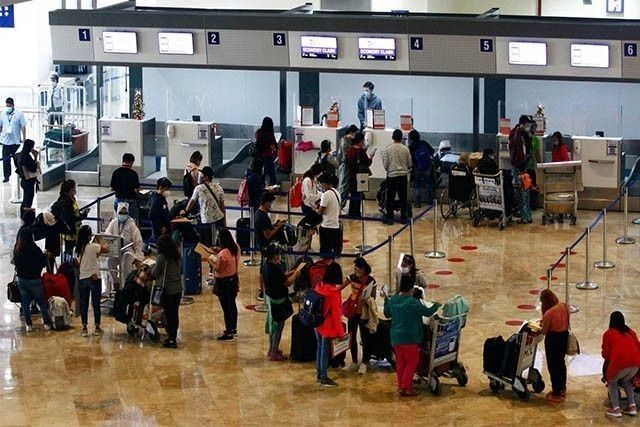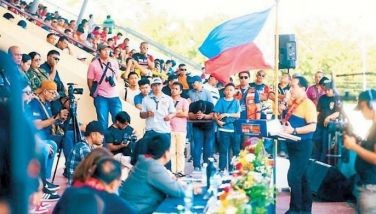OFW in Hong Kong with new COVID-19 variant in stable condition, DOH says

MANILA, Philippines — The overseas Filipina worker in Hong Kong who contracted the new variant of the coronavirus is now in stable condition, a senior health official said Wednesday.
Authorities in Hong Kong reported last week that a 30-year-old resident who returned from Manila on December 22 were among its four cases of the new variant, sending fears in the Philippines that it may have reached its shores.
Officials later on sought to allay concerns and said the variant has not yet been detected in the country. Before year-end, the administration had halted the entry of foreign tourists from over a dozen countries with confirmed cases, which has now extended to over 30 nations.
"Apparently, according to Hong Kong authorities, she is in stable condition," Health Undersecretary Maria Rosario Vergeire said over Laging Handa. "She was admitted in a hospital but she is stable as of now."
She added that results of the swab tests for the close contacts of the domestic worker may be out by Thursday or Friday.
Further details on the OFW later surfaced that she had come from Solana, a town in the northernmost part of the Philippines in Cagayan, as reported by the STAR.
Gov. Manuel Mamba has since said that her family members and other contacts were tested for the virus, as it remains unclear to date as to where the OFW contracted the new variant.
The country's flag carrier Philippine Airlines had also reported that she had a negative test result before boarding a flight from Manila, a requirement for arriving passengers before entering Hong Kong.
Pandemic protocols
In the same briefing, Vergeire said no change in protocols in dealing with the pandemic is expected, apart from ensuring stricter compliance of the public on minimum health standards.
"Tandaan po natin, wala pong nabago sa mode of transmission," she said. "Pareho pa rin [that] is through droplets, at ang sinasabi lang itong mga variant na ito mas nakakapag-increase ng transmissibility. Ibig sabihin, mas nakahahawa."
(We must remember that the mode of transmission has not changed. It is still through droplets, but the variant increases transmissibility, meaning it is more infectious.)
The health official added that the government should strengthen its strategies in tracing and detection to name a few, and advised the public against flocking to crowded places apart from the regular wearing of face masks and shields.
As of January 13, entry of foreign travelers to the country are still restricted to those coming from the following areas:
- Australia
- Austria
- Brazil
- Canada
- Denmark
- Finland
- France
- Germany
- Hong Kong SAR
- Iceland
- India
- Ireland
- Israel
- Italy
- Jamaica
- Japan
- Jordan
- Lebanon
- Luxembourg
- Norway
- Oman
- Pakistan
- People's Republic of China
- Portugal
- Singapore
- South Africa
- South Korea
- Spain
- Sweden
- Switzerland
- The Netherlands
- United Kingdom
- United States
Filipinos returning to Manila from the said countries, however, would still be allowed entry but would have to undergo the prescribed 14-day quarantine period despite testing negative for COVID-19.
The administration included Beijing in its travel restriction only on January 12, which begins today but will only last until January 15, unless extended.
It had drawn criticism especially after officials including President Rodrigo Duterte rejected banning tourists from China, where the virus had originated, in early 2020 that eventually saw the Philippines its first case: a Chinese tourist from Wuhan, the ground zero of COVID-19.
A technical working group led by Vegeire has since been formed to monitor and identify new variants of the coronavirus, as well as being tasked to provide policy recommendations.
Health officials have also appealed to the public to refrain from sharing unverified information on social media, stressing that there is still no confirmed case of the variant in the country to date.
- Latest
- Trending































